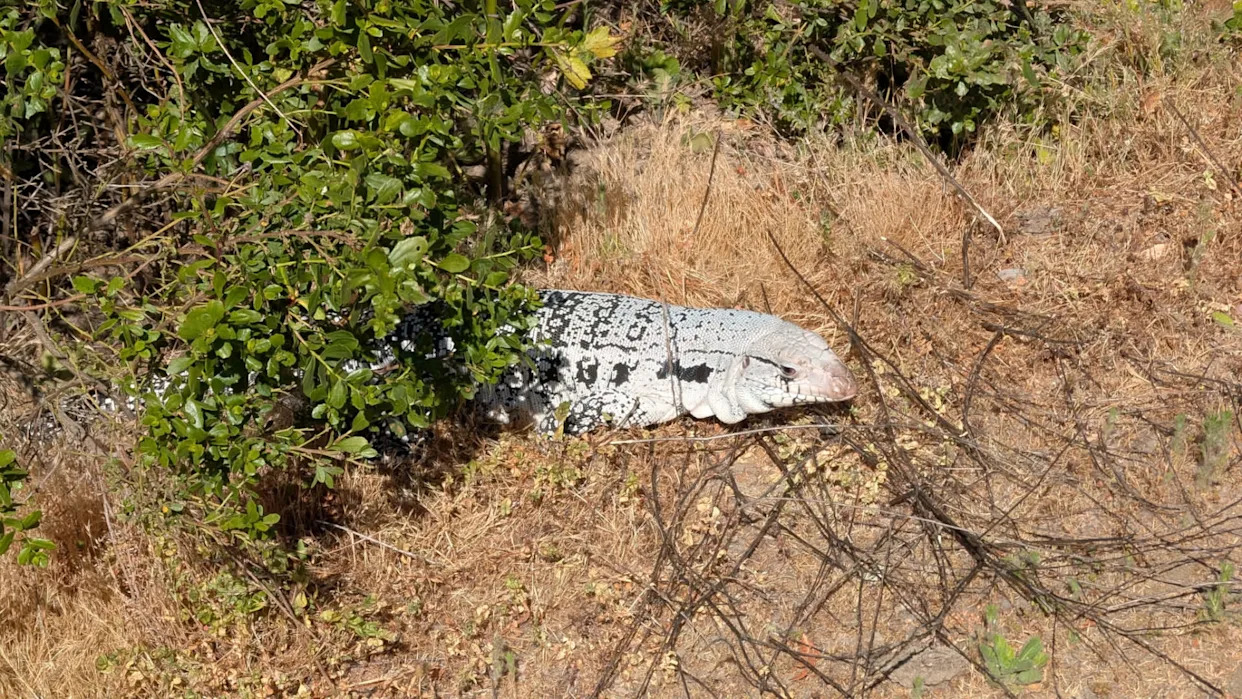Hikers were shocked to discover a giant invasive species of lizard — the Argentine tegu — in a California park.
What’s happening?
An article in Smithsonian magazine revealed that the Argentine tegu was spotted in Joseph D. Grant County Park, not far from San José.
After the invasive species was discovered by hikers, park rangers began to search for the lizard and told members of the public to keep an eye out. Though the Argentine tegu does not pose a physical threat to humans, these lizards are not meant to be in the United States and can cause serious harm to local ecosystems.
This tegu could be an escaped pet, according to the Smithsonian. “Please do not go searching for the tegu or trap it,” Santa Clara County Parks stated on Facebook. “If you see it, back away safely and notify rangers as soon as possible.”
The Sacramento Bee later reported that park officials had captured the tegu, ending the concern with the hope that it was an isolated case of an escaped or released pet. Even such cases can be dangerous for leading to invasive species problems, however, if two or more in the same area find each other and breed.
Tegus can grow up to 5 feet long, and they eat eggs and hatchlings of native species, such as ground-nesting birds, snakes, alligators, and tortoises.
Watch now: Giant snails invading New York City?
Why are invasive species such a problem?
Often, invasive species are introduced to ecosystems by humans, and their presence has the potential to decimate native ecology. They are fast to reproduce and make survival difficult for the plants and animals that naturally are part of the habitat.
By competing with native species for food and water, the whole balance of the area can be thrown into chaos and endangered species can be pushed closer to extinction.
What’s being done about invasive species?
Protecting native species by prioritizing native plants, animals, and habitats can conserve natural resources and ensure food security, and it can also limit the spread of diseases among both animals and humans.
In Florida, it’s illegal to own tegus because of how invasive they are, and officials are in the process of trapping and euthanizing as many of these lizards as they can.
“We can slow them down, but we can’t stop them. They’re here and they’re reproducing,” Kevin Donmoyer, an invasive species biologist at Everglades National Park, said, per Smithsonian.
Though tegus are illegal to own and breed in many parts of the U.S., including Florida, they are legal to own in California. Perhaps if the invasive species problem gets worse, local governments will consider tightening the laws around owning these lizards.
Join our free newsletter for good news and useful tips, and don’t miss this cool list of easy ways to help yourself while helping the planet.
Yahoo News – Latest News & Headlines
Read the full article .


